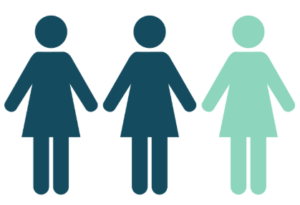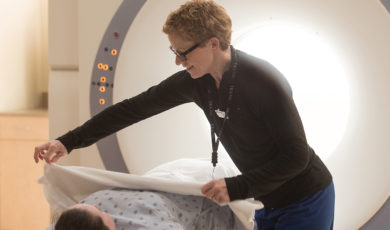CT Cardiac Calcium Score for Women
Coronary Artery Disease in Women: A Silent Threat
Heart disease is the #1 cause of death in women in the United States, claiming more lives each year than all forms of cancer combined. Yet, many women don’t realize they’re at risk until it’s too late.
-
1 in 3 women dies from heart disease each year
-
Only 56% of women recognize it as their leading health risk
-
Symptoms in women are often subtle: fatigue, shortness of breath, or nausea—not always chest pain
Know Your Risk with a CT Cardiac Calcium Score
A Cardiac CT Calcium Scoring exam is a safe, non-invasive scan that checks for calcium buildup in your coronary arteries—a key early indicator of heart disease.
Fast facts:
-
Takes 5–10 minutes
-
No needles, no prep
-
Radiation exposure is low—less than a mammogram
-
Gives you a personalized score that estimates your risk of heart attack
This quick test could help you and your provider make informed decisions before symptoms begin.
Is This Test Right for You?
To schedule a CT Calcium Scoring exam, you’ll need a referral from your healthcare provider.
This test is typically recommended for women between the ages of 40 and 75 who may be at risk for heart disease—even if they aren’t experiencing symptoms. You may benefit from this screening if you have:
-
High blood pressure
-
High cholesterol
-
Diabetes or prediabetes
-
A family history of heart disease
-
A history of smoking
-
A sedentary lifestyle
-
Been told you’re at “intermediate risk” for cardiovascular disease
Even if you feel healthy, your heart may be telling a different story. This scan offers a chance to get ahead of heart disease before it becomes a problem.
What Happens After Your Scan?
After your CT Calcium Score scan, your images are carefully reviewed by a fellowship-trained, board-certified radiologist.
Within approximately 3 to 5 business days, a detailed report will be sent to the healthcare provider who referred you for the exam. Your provider will review the results with you, explain your calcium score, and help determine your 10-year risk of heart disease.
Depending on your results, your provider may:
-
Recommend lifestyle changes to reduce risk
-
Discuss medications like statins
- Suggest further cardiac evaluation if needed
This exam offers more than just a number—it provides a clearer picture of your heart health, so you and your provider can make proactive, informed decisions about your care.
Insurance Coverage and Pricing
CT Cardiac Calcium Scoring is not typically covered by insurance, as it is considered a preventive screening exam.
However, we offer this important heart health test at a low self-pay rate of $179.40, due at the time of service when ordered as a screening exam. This flat rate includes the scan, radiologist interpretation, and the report sent to your referring provider.
our goal is to make this potentially lifesaving test accessible and affordable to everyone.
Schedule Your CT Calcium Score Today!
Because strong women start with strong hearts.
Resources for Women



